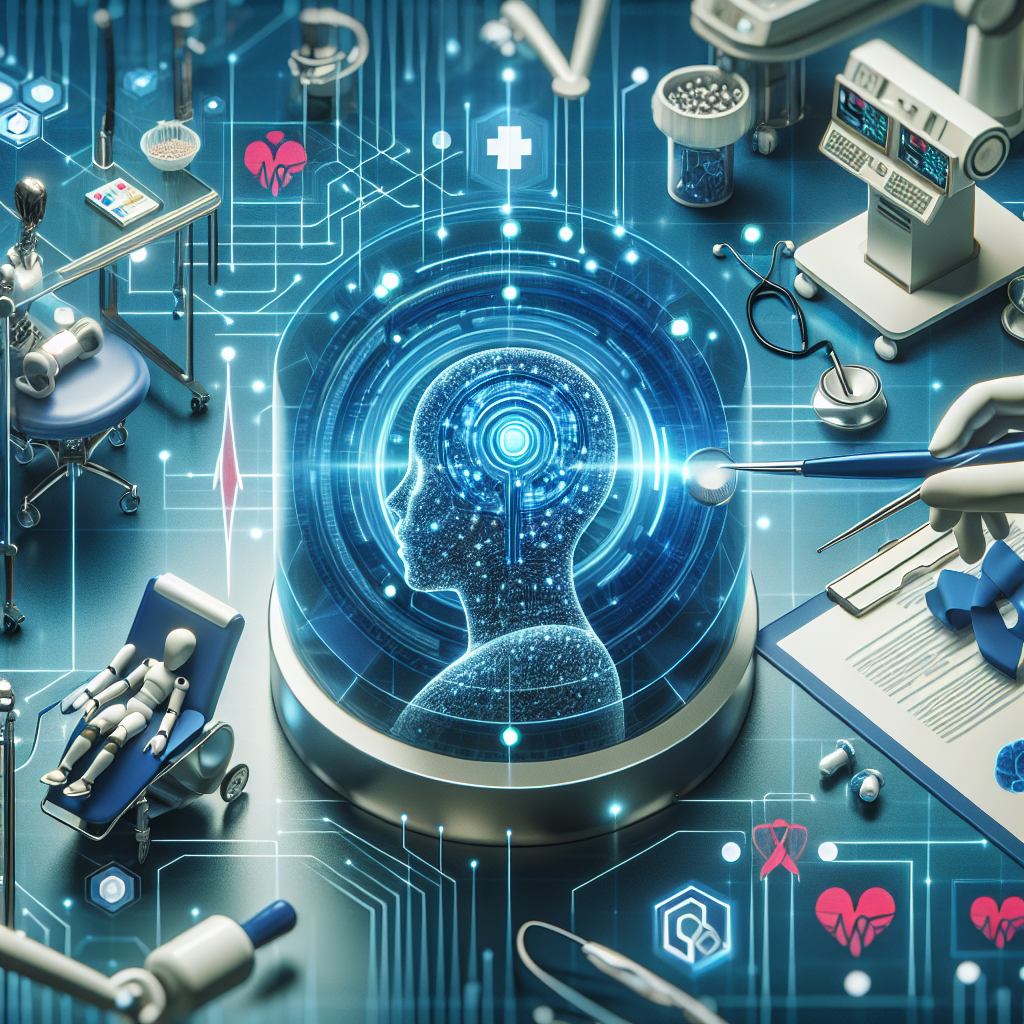Artificial General Intelligence (AGI) has the potential to revolutionize healthcare by enhancing diagnosis and treatment processes. AGI refers to a type of artificial intelligence that possesses human-like cognitive abilities, allowing it to learn and adapt to new situations without being explicitly programmed. In healthcare, AGI can analyze vast amounts of data, identify patterns, and provide insights that can improve patient outcomes and reduce healthcare costs.
Enhancing Diagnosis with AGI
One of the key areas where AGI can make a significant impact in healthcare is in the field of diagnosis. AGI algorithms can analyze medical images, such as X-rays, MRIs, and CT scans, with a level of accuracy that surpasses human capabilities. This can help healthcare providers to detect diseases and conditions at an earlier stage, leading to more effective treatment outcomes.
For example, AGI can be used to analyze mammograms for signs of breast cancer, helping radiologists to identify potential tumors that may have been missed by the human eye. In a study published in the journal Nature, researchers demonstrated that an AGI system was able to outperform human radiologists in detecting breast cancer from mammograms.
AGI can also be used to analyze genetic data to identify genetic markers that are associated with specific diseases. This can help healthcare providers to personalize treatment plans for patients based on their genetic makeup, leading to more effective and targeted therapies.
Enhancing Treatment with AGI
In addition to enhancing diagnosis, AGI can also improve treatment processes in healthcare. AGI algorithms can analyze patient data, such as medical history, lab results, and treatment outcomes, to identify the most effective treatment options for individual patients. This can help healthcare providers to tailor treatment plans to the specific needs of each patient, leading to better outcomes and reduced healthcare costs.
For example, AGI can be used to analyze data from electronic health records to identify patients who are at risk of developing complications from a certain disease or condition. Healthcare providers can then intervene early to prevent these complications, improving patient outcomes and reducing healthcare costs.
AGI can also be used to optimize treatment plans for patients with chronic conditions, such as diabetes or heart disease. By analyzing patient data and identifying patterns that are associated with better treatment outcomes, AGI can help healthcare providers to adjust treatment plans in real-time to ensure that patients are receiving the best possible care.
FAQs
Q: How is AGI different from other types of artificial intelligence?
A: AGI is different from other types of artificial intelligence, such as narrow AI or machine learning, in that it possesses human-like cognitive abilities. AGI can learn and adapt to new situations without being explicitly programmed, allowing it to perform a wide range of tasks that require human-like intelligence.
Q: How can AGI improve healthcare outcomes?
A: AGI can improve healthcare outcomes by enhancing diagnosis and treatment processes. AGI algorithms can analyze vast amounts of data, identify patterns, and provide insights that can help healthcare providers to detect diseases at an earlier stage, personalize treatment plans, and optimize treatment outcomes for individual patients.
Q: What are the challenges of implementing AGI in healthcare?
A: There are several challenges to implementing AGI in healthcare, including data privacy and security concerns, regulatory hurdles, and the need for healthcare providers to trust and adopt AGI technologies. Additionally, there may be ethical considerations around the use of AGI in healthcare, such as ensuring that algorithms are unbiased and do not reinforce existing disparities in healthcare.
Q: What is the future of AGI in healthcare?
A: The future of AGI in healthcare is promising, with the potential to revolutionize how healthcare is delivered. As AGI technologies continue to advance, we can expect to see more widespread adoption of AGI in healthcare settings, leading to improved patient outcomes, reduced healthcare costs, and more personalized and targeted treatment options for patients.

